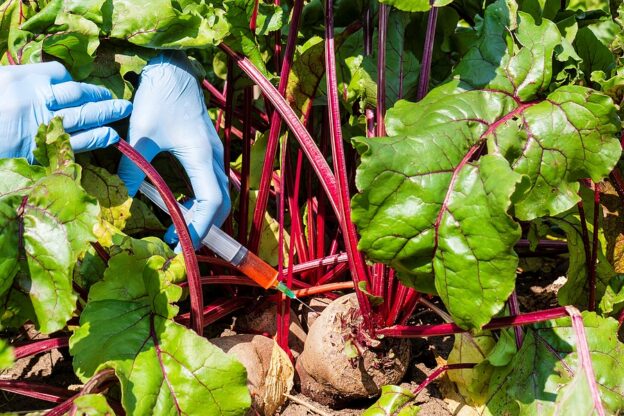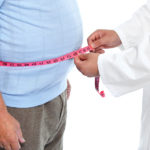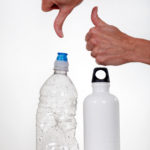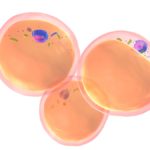By David Blyweiss, M.D., Advanced Natural Wellness
November 5, 2021
In recent weeks you’ve learned a lot about how important physical activity and eating a healthy diet are when it comes to beating weight gain and obesity. These two premises are absolutely vital when it comes to losing stubborn weight.
But there’s one more thing that needs to be addressed. Our toxic environment.
Certain chemicals called obesogens – or endocrine disrupters – interfere with your hormones and bind to fat cells. They cause three things to happen.
First, they accumulate in fatty tissue where they make your fat cells grow bigger and stimulate the production of more fat cells. Second, they change your metabolism by promoting the storage of calories as fat, while also reducing the number of calories you burn. And third, they mess with your hunger signals, making it difficult to moderate food intake.
I find that when patients fail to drop pounds – even with physical activity and a healthy diet – these fat-promoting chemicals often play a role.
These fattening toxins are all around you. They’re in your water, air, food, perfume, deodorant and all sorts of other items.
And I hate to say it, but some of the foods you eat are actually one of the biggest sources of these toxins – even foods that are perceived as healthy.
MD Exposes the Hidden Danger to Your Eyes

When your eyesight starts to fail, it's a real problem. Suddenly you can't go to the grocery store... you can't get to the doctor if you have an emergency... you can't meet your friends for dinner…
Your "regular" doctor doesn't have time to keep up with the latest research. And the same goes for eye doctors. They go to school to learn how to fit you for glasses and contacts, but have no way of preventing the damage and loss of eyesight that threatens your freedom and independence.
Let me show you something that explains a LOT about how your eyes work.
In my FREE Special Report, I'll show you a HUGE, untapped resource for your eyes that safely and naturally restores clear, effortless eyesight.
Click here to get started...
Conventional fruits and vegetables are loaded with toxic herbicides, pesticides and environmental pollutants that bind to your fat cells. That’s why I always recommend buying organic produce.
Commercial livestock is exposed to toxic compounds that collect in the fatty areas of the animal. When you eat the meat, they collect in your fatty tissue, too.
And farm-raised fish contain all sorts of chemicals. The most common are polychlorinated biphenyls, which have a direct link to obesity and diabetes.
It’s easy to understand why I always choose grass-fed, wild-caught and pasture-raised animal proteins, right?
In fact, I just posted articles on both of these topics in August. You can check them out to learn how to choose your organic fruits and vegetables; and clean, naturally-raised meats.
Now, let’s take a look around your house and see what else is bulking up your fat cells.
Are These Every Day Products Making You Fat?
In addition to obesogens in food, you’ll find that many items you use every single day are blocking your ability to lose weight, and maybe even adding to weight gain.
- Plastic water bottles, containers and wraps often contain a chemical called. Bisphenol A (BPA). Additionally, the linings of most food cans contain BPA. You’re even exposed to it when you handle grocery store receipts.
- Phthalates and parabens appear in all sorts of personal care products… soaps, shampoos, deodorants, perfume, lotions, shaving cream and more. They’re also in laundry soap and air fresheners. You can even find phthalates in your shower curtain, vinyl flooring and carpeting.
- Perfluorooctanoic acid (PFOA) can be found in microwave popcorn bags where it can seep into the popcorn. It was also used for waterproof clothing and in stain repellants used to repel stains on carpeting and fabric furnishings. So you may have PFOA lingering in your home.
- Polybrominated diphenyl ethers (PBDEs) are flame retardants. They are used to treat materials such as fabrics, furniture and electronics to make them less likely to catch fire.
So you can see that there are obesogens all around you. But there are ways to limit your exposure to them.
Ditch the plastics. Switch to glass or stainless steel storage containers. Try to avoid buying foods that come in plastic, and stick to canned goods that are packaged in BPA-free lined cans, or an equivalent product that comes in a jar.
The World's Quickest Solution for Ending Prostate and Urinary Misery
This has recently been revealed to be one of the only real breakthroughs in prostate health.
The seeds of a strange fruit (sometimes called "Chinese Apples") hold powerful phytonutrients that are a revolution in prostate health.
In fact, UCLA and Veterans Administration research have now proved this to be true.
Not only that, but it may be the worlds quickest solution for ending prostate misery.
Simply stated, these phytonutrients represent a huge step beyond beta sitosterol, saw palmetto, and other phytosterols alone.
Simply click HERE if you want to have fast prostate relief...restful, uninterrupted sleep...no more constant "urges to go"...enhanced virility...and optimal prostate support for life.
Upgrade your personal hygiene products. When choosing lotions, deodorants, sunscreens, shampoos and other personal care items, read the labels. If you see any word ending in “paraben”– like methylparaben or ethylparaben – put it back on the shelf.
Replace old cookware. Cast iron, stainless steel and ceramic cookware are all good options.
Stay away from scented products. A lot of grooming products, perfumes, air fresheners, laundry soaps and other items smell really good. On labels, phthalates are hidden under the guise of “parfum” or “fragrance”.
Dust and vacuum frequently. House dust accumulates from products that contain PBDEs and PFOAs in your home. Dusting and vacuuming can help reduce the presence of these particles.
Detoxify Your Fat Cells
There are also a few nutrients that I like when it comes to clearing toxins from your fat cells more quickly.
Start with a good probiotic formula. Look for one that includes a prebiotic and multiple live strains of beneficial bacteria, like lactobacillus and bifidobacteria. The more strains and the higher the colony count, the better off you’ll be.
Additionally, I recommend investing in a chlorophyll supplement. This is the green pigment in green leafy vegetables. It has the ability to bind with a variety of toxic substances and remove them from your body with your bowel movements.
The main compound in green tea, EGCG, is also a powerful weapon when it comes to relieving your toxic load. It helps reduce your body’s burden of polychlorinated biphenyls and other pollutants. (If you don’t like green tea, you can always take it in supplement form. Look for one that contains EGCG and standardized to 60% polyphenols. For the most impact, set a goal of 240 to 320 mg. of polyphenols every day.)
I also recommend taking about 500 mg. of N-acetylcysteine (NAC) daily. This will boost your levels of glutathione, your “master antioxidant.” People who show high levels of pollutants in their bodies often have depleted stores of this antioxidant.
When you reduce the toxic load in your fat cells, get regular daily movement and enjoy an organic and mostly plant-based diet, the majority of your weight loss roadblocks will automatically fall away.
And it’s good for you!
SOURCES:
Blumberg B. Obesogens, stem cells and the maternal programming of obesity. J Dev Orig Health Dis. 2011;2(1):3-8.
Barrett JR. POPs vs. fat: persistent organic pollutant toxicity targets and is modulated by adipose tissue. Environ Health Perspect. 2013;121(2):a61.
Holtcamp W. Obesogens: an environmental link to obesity. Environ Health Perspect. 2012;120(2):a62-a68.
Snedeker SM, Hay AG. Do interactions between gut ecology and environmental chemicals contribute to obesity and diabetes?. Environ Health Perspect. 2012;120(3):332-339.
Morita K, Ogata M, Hasegawa T. Chlorophyll derived from Chlorella inhibits dioxin absorption from the gastrointestinal tract and accelerates dioxin excretion in rats. Environ Health Perspect. 2001;109(3):289-294.
Koo SI, Noh SK. Green tea as inhibitor of the intestinal absorption of lipids: potential mechanism for its lipid-lowering effect. J Nutr Biochem. 2007;18(3):179-183.
Lee DH, Jacobs DR Jr. Hormesis and public health: can glutathione depletion and mitochondrial dysfunction due to very low-dose chronic exposure to persistent organic pollutants be mitigated? J Epidemiol Community Health. 2015 Mar;69(3):294-300.







